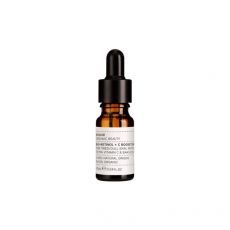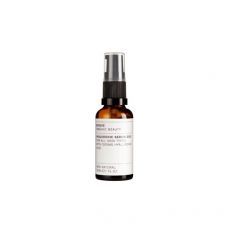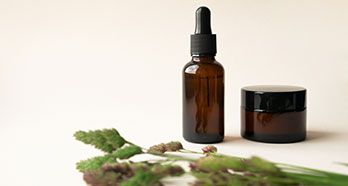Essential Oils for Acne Treatment: Natural Remedies for Clearer Skin
Acne, a common skin concern, can significantly impact self-esteem and overall well-being. In this blog, we explore the realm of essential oils for acne treatment, offering natural remedies to help you achieve clearer and healthier skin. This is where essential oils can play a role in clearing your skin of acne, blemishes or acne scarring.
If you're struggling with acne and want to explore options beyond over-the-counter or prescription treatments, essential oils may be worth considering. Essential oils are derived from various parts of plants, such as stems, roots, leaves, seeds, and flowers, using methods like steam distillation or cold pressing. Plant extracts have been used in traditional medicine for centuries and are also being studied in modern medicine for their ability to combat bacteria.
Why Consider Essential Oils for Acne
Acne is a common skin condition caused by the overproduction of sebum, a type of oil that is produced by the sebaceous glands in our skin. When sebum clogs the pores, it can lead to the formation of pimples, blackheads and whiteheads.
Essential oils are all-natural solutions that can work wonders on your skin without harsh chemicals or additives. They can help soothe inflammation, balance oil production and promote healing. Regarding essential oils for acne, there are several options to consider. Let's explore just what those are:
Top Essential Oils for Clearing Acne
Tea Tree Oil
![]()
Tea tree oil is known for its ability to reduce acne-causing bacteria and inflammation. It contains compounds that have been shown to be effective against a range of bacteria, including the type of bacteria that causes acne. By reducing the amount of bacteria on the skin, tea tree oil can help prevent new pimples from developing.
In addition to its antibacterial properties, tea tree oil has anti-inflammatory properties that can help reduce redness and swelling associated with acne. It can also help soothe irritated skin and promote healing.
Lavender Oil
![]()
Lavender oil is known for its calming effects, which can help reduce the inflammation and irritation associated with acne. Additionally, lavender oil has antiseptic properties that can aid in preventing further breakouts. If you're looking for a natural way to manage your acne, lavender oil is worth trying.
Frankincense Oil
![]()
Frankincense oil is prized for its ability to promote skin cell regeneration and reduce the appearance of acne scars. Adding frankincense oil to your skincare routine may help fade post-acne marks and improve overall skin texture.
Jojoba Oil
![]()
While technically a liquid wax, jojoba oil closely resembles the skin's natural sebum. Using jojoba oil as a moisturiser can help regulate oil production and prevent clogged pores.
Application Tips for Essential Oils
Follow these tips when using essential oils to treat acne for best results:
- Always dilute essential oils in a carrier oil before applying to the skin. Olive, coconut, almond and jojoba oil make great carriers.
- Do a patch test before widespread use to check for allergies. Apply diluted oil to a small area and look for reactions.
- Use a very light hand and mix just 2-3 drops of essential oil per teaspoon of carrier oil to avoid irritation.
- Apply oils to cleansed skin using a cotton ball. Focus on problem areas and avoid contact with eyes.
- Choose oils suited to your skin type. For dry skin, try geranium or Ylang Ylang. For oily skin, go with tea tree, lavender or lemongrass.
- Be consistent and use essential oils 2-3 times daily after cleansing to see results. Monitor skin and adjust as needed.
Essential Oil Skincare Recipes for Acne Prone Skin
Here are two effective DIY recipes using essential oils to improve acne-prone skin:
![]()
Clarifying Facial Oil
15 ml jojoba oil
3 drops tea tree essential oil
3 drops lavender essential oil
2 drops lemongrass essential oil
Acne Spot Treatment
10 ml jojoba oil
5 drops tea tree essential oil
3 drops frankincense essential oil
Always shake blends well before each use. Store in an amber glass bottle out of direct sunlight. Apply to blemish with a cotton bud.
While over-the-counter acne solutions may work for some, others may benefit from natural alternatives like essential oils. If you have mild to moderate acne, incorporating essential oils into your skincare routine may support clearer, calmer, more vibrant skin.
Common questions about essential oils for acne
Can essential oils replace my current acne treatment?
Essential oils can complement your existing acne treatment routine. It's best to consult with a dermatologist before making any significant changes.
How often should I use essential oils for acne?
Start with using essential oils a few times a week, preferably in the evening, and gradually increase frequency if your skin tolerates them well. Monitor your skin's response and adjust the frequency as needed.
Can essential oils cause skin irritation?
Some essential oils may cause irritation, especially when used undiluted. Always perform a patch test and dilute essential oils with carrier oil before applying to your face.
Improving Acne with Essential Oils From Baldwins
Embrace the natural power of essential oils and embark on a journey to clearer, healthier skin. Discover the benefits of nature's remedies and unlock your skin's true potential with G Baldwin & Co.
Now that you're equipped with the knowledge of essential oils for acne treatment, you're ready to embrace nature's remedies and achieve the clear, radiant skin you deserve. Here's to your journey towards a more confident and vibrant complexion! You can contact our herbalist to create a personal essential oil routine to target your acne.









 Looking for Qualified Advice on Herbs & Supplements?
Read our health guides, quick tips and popular posts on a range of health conditions, products & fitness
Looking for Qualified Advice on Herbs & Supplements?
Read our health guides, quick tips and popular posts on a range of health conditions, products & fitness
 At number 64, our Walworth Road Shops are featured in Time out London’s
100 best shops and we couldn’t be more delighted!
At number 64, our Walworth Road Shops are featured in Time out London’s
100 best shops and we couldn’t be more delighted!

 View our Catalogue online.
It is stocked full of our latest oils, beauty products, health foods & gifts.
View our Catalogue online.
It is stocked full of our latest oils, beauty products, health foods & gifts.